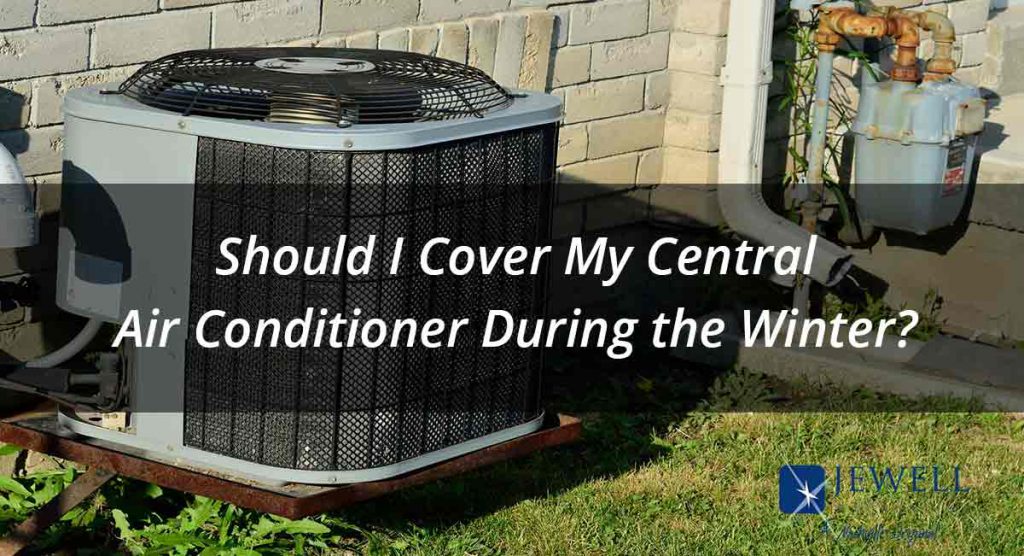
With another Nashville winter just around the corner, our office is getting calls from homeowners in our service area asking the common question: “Should I cover my outdoor AC unit during the winter months?”
Some will argue that there are benefits to covering an outdoor unit, such as protection from ice and snow, as well as debris like leaves, sticks and branches.
But as a general rule, the “cons” of covering a unit probably outweigh the “pros.”
The Issues With Covering Your Central HVAC Unit
Among the potential drawbacks of covering your unit is that moisture may get trapped under the cover, in which case parts of the unit could rust or corrode or otherwise be negatively affected.
Another problem with using a cover is that it can encourage rodents or other small animals to take shelter underneath the cover. If animals chew through wiring it could make for an expensive repair come springtime.
A common ‘compromise’ solution is to cover the top of a unit with a piece of plywood, an inexpensive measure that prevents damage from above while still allowing for ventilation.
However, most outdoor units are designed to withstand winter weather, which argues against using a cover. Anyway, winters in Davidson County and the rest of Middle Tennessee are relatively mild, a far cry from conditions in, say, the northeast or Canada, where units typically fare just fine without covers.
Check With The Central A/C Unit Manufacturer
You may want to consider seeking out the manufacturer’s advice. Rheem® is one of Jewell Mechanical’s HVAC equipment brand partners and on Rheem’s FAQ page, the company advises against covering outdoor units, noting that “air conditioners that operate seasonally are built to withstand an outdoor environment and should not be covered.”
Similarly, another brand that we service, Lennox, says that covering an outdoor unit is not necessary. In fact, Lennox’s outdoor unit care FAQ page goes on to say that “covering an entire unit may actually trap moisture. If you’re concerned about leaves and debris getting inside the housing, short covers are available as an optional accessory and may be purchased through your local Lennox dealer.”
What Should You Do To Take Care Of Your HVAC Unit?
Much more important than covering your unit is arranging for regularly scheduled, seasonal residential HVAC maintenance. At Jewell Mechanical we recommend twice-annual inspections and maintenance for residential heating and air conditioning systems—once in the fall and once in the spring. In fact, we offer an Energy Savings Agreement (ESA) that includes system diagnostic assessments, as well as other benefits.
The spring service includes: full maintenance, coil cleaning, electrical connections check, filter check and thermostat operations check.
The fall service includes: full maintenance, electrical connections check, filter check, thermostat operations check and check of the heat exchanger.
Other benefits of an ESA include $500 off a system replacement, discounts on repairs and priority customer status.
ESA’s are affordable and easy to sign up for. Simply contact us online or call us at (615) 469-5965. We’re here to help!
